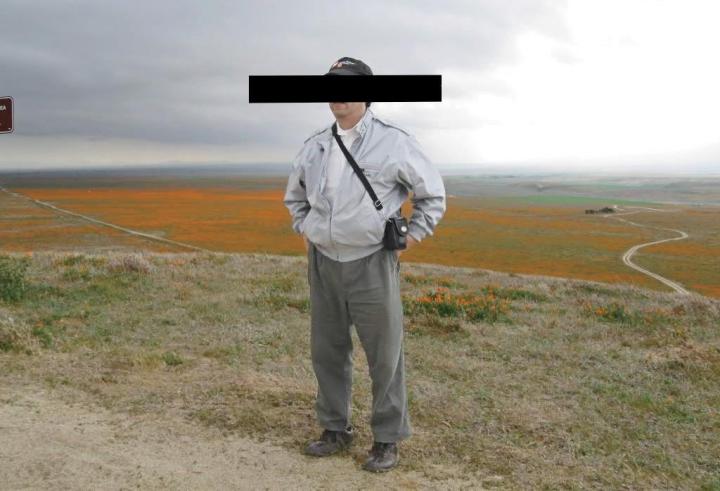
Bitcoin’s greatest mystery – the identity of the intensely popular cryptocurrency’s creator, long known only as “Satoshi Nakamoto” – has apparently been uncovered in a massive cover story scoop by Newsweek reporter Leah McGrath Goodman. “Satoshi Nakamoto” was, until now, widely believed to be a pseudonym – an enigmatic cover for the real Bitcoin creator, rumored to be anyone from a late 30-something man living in Japan to operatives from the U.S. government.
The creator of Bitcoin’s real name? Dorian Prentice Satoshi Nakamoto.
That’s right, Satoshi Nakamoto was reportedly not a pseudonym after all. According to McGrath Goodman, Nakamoto is 64-years-old, lives in a modest home in southern California, drives a Toyota Corolla, has a model train hobby, did secretive work for corporations and the U.S. military, and is worth an estimated $400 million in Bitcoin.
The report, if accurate, reveals a fascinating man – a brilliant mathematician, a father of six equally brilliant children, a descendant of samurai. You would think that those in the Bitcoin community, many of whom have meticulously pored over the details known about Nakamoto – who published this paper (PDF) detailing the Bitcoin protocol in 2008 and was active on the Bitcointalk.org forum until 2011, before he disappeared and passed the reigns of Bitcoin development to Gavin Andresen, lead developer of the Bitcoin Project – in an attempt to uncover the identity behind the name. But they’re not.
Bitcoin users are pissed.
While the story only went live Thursday morning, the quickly growing consensus is that McGrath Goodman has violated everything from common decency to journalistic ethics by publishing so much personal information about Nakamoto, who so desperately wanted to remain out of the public eye that he called the police when he found out McGrath Goodman was on her way to his house to ask him about his involvement with Bitcoin.
The main points of contention – besides the fact that Nakamoto simply wanted to be left alone – is that Newsweek decided to publish a photo of Nakamoto’s house, street number and all, which could fairly easily let anyone with access to Google Maps find him, an aged man with a secret fortune. Update: Newsweek has since removed the photo of Nakamoto’s house. But considering the photo was available for hours prior to it being taken down, it is still widely available across the Web.
On Reddit’s Bitcoin community, users quickly lambasted McGrath Goodman for “doxxing” Nakamoto – Internet parlance for publishing someone’s identity and other personal information without their consent.
“Shame that they didn’t bother to respect his privacy at all,” writes one commenter. “This article reveals so much about him that he’s now easy to find.”
“They also mentioned ‘his estimated $400 million of Bitcoin riches’,” writes another. “They’ve basically slapped a target on his back.”
These comments permeate throughout the thread, and on those of other cryptocurrency-related subreddits, and Hacker News, a popular developer-focused link-sharing site that often discusses Bitcoin.
“Being labeled Satoshi regardless of truth is pretty much going to get you robbed, kidnapped or killed,” wrote a commenter. “This dude lives in this town and has $400M of untraceable currency? The article gives his name, face, address and relatives. You can be sure as hell that somebody will do something stupid to try and get to it.”
Users of Bitcointalk.org, which is often considered the central hive of the Bitcoin community, have expressed their disbelief at the report, and further criticized McGrath Goodman and Newsweek for putting a public magnifying glass on Nakamoto’s life.
“If this is true I think this is very irresponsible,” writes one commenter. “[McGrath Goodman] posts the photo, house photo, legal name, and more information of someone that wants to be anonymous. Not to mention how dangerous this would be if true. I imagine many people would do terrible things to get his private keys.”
The most damning outpouring of criticism comes, of course, from Twitter. Worst of all, perhaps, is the condemnation from Andresen, who is quoted in the article.
I’m disappointed Newsweek decided to dox the Nakamoto family, and regret talking to Leah.
— Gavin Andresen (@gavinandresen) March 6, 2014
Many others have condemned the report as well. For example:
I’m definitely uneasy at the lengths to which this Newsweek writer went to expose Satoshi Nakoto, the Bitcoin creator http://t.co/STIUXMROZS
— Julian C. Dunn (@julian_dunn) March 6, 2014
http://t.co/zJLC75tjbt worst form of journalism possible if this is the real satoshi nakomoto #bitcoin
— HeH (@aiberief) March 6, 2014
newsweek tries to dox Satoshi Nakomoto. I don’t know if I’m buying it though. http://t.co/oIxWTAdWZu
— Will Strafach (@chronic) March 6, 2014
I reached out to McGrath Goodman on Twitter for her response to the criticism, but have not yet heard back. I’ll update this space with any response I receive. Update: McGrath Goodman has begun responding to questions and criticisms from many people on Twitter. See her responses here.
Of course, many are praising McGrath Goodman for the simple brilliance of the scoop, if it is in fact accurate – if Satoshi Nakamoto really is who the report says he is. After all, who would have thought that the identity of Satoshi Nakamoto could be found just by looking in a phone book? (Okay, it took a bit more than that – but you get the point.) As a journalist who covers Bitcoin, I can’t help but feel a twinge of jealousy and stupidity for not thinking to do more or less what McGrath Goodman did. But considering the response to this report – which is not 100 percent airtight, I should add – I can’t say I envy her.
What do you think: Did Newsweek cross a line by revealing Nakamoto’s identity, home, and personal details? More importantly, perhaps, is there any value to knowing who Satoshi Nakamoto really is?


